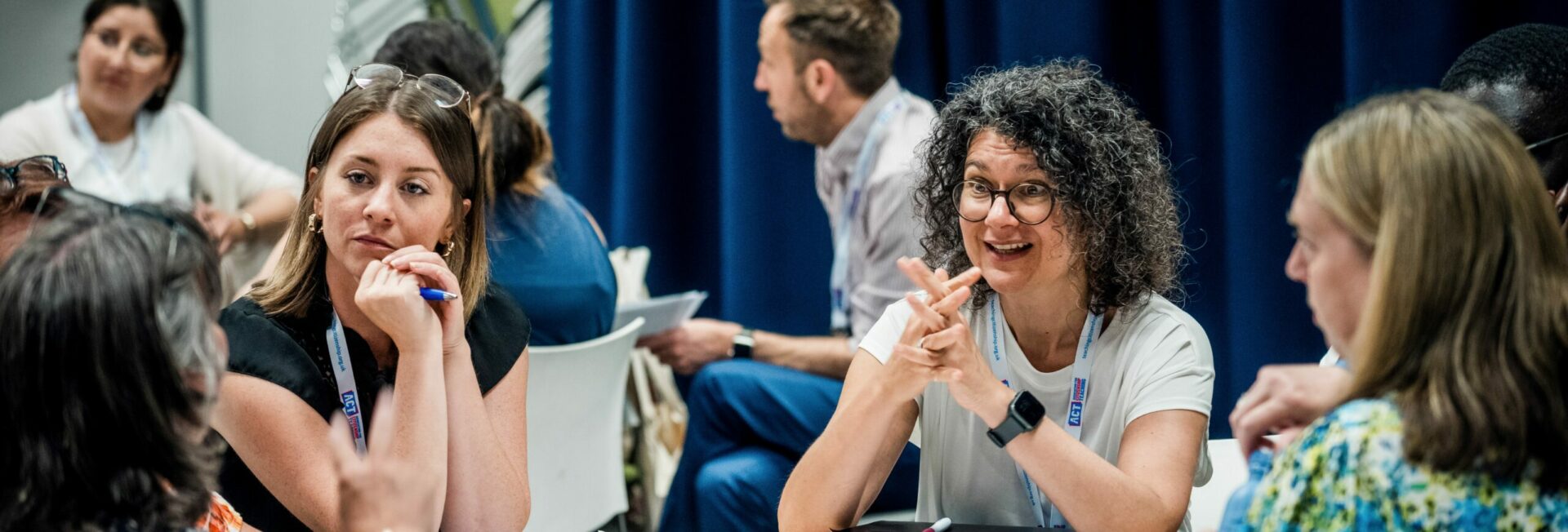
Who is teaching Citizenship and what are they doing?
Read the latest findings from our NCES teacher survey. Helping us understand more about Citizenship Education from those teach it
Who Is Teaching Citizenship and What Are They Doing?
ACT’s 2023 National Citizenship Education Survey was designed to help us gain a better understanding of secondary-school Citizenship Education from the perspective of those who teach the subject. Respondents were asked about their professional training, curriculum provision, institutional support and their approach to teaching.
The survey was completed by teachers from 75 schools from across England, including state, private, mixed, single-sex, mainstream, SEN, urban and rural institutions.
Who Teaches Citizenship?
The survey revealed that nearly one-quarter (23.3%) of teachers had qualified as Citizenship Education teachers. The majority (76.7%) held qualifications in other fields, such as Humanities (42.5%), Social Sciences (8.2%), or related disciplines (26%).
What Are They Teaching and How Are They Doing It?
Inequalities, the media, and human rights emerged as the most frequently taught topics, with over 66% of teachers reporting covering these topics extensively across Key Stage 3 (KS3). Elections and voting, along with the environment and climate change, were the least commonly taught topics, with only 33% of teachers reporting extensive coverage in KS3.
Discussing topical and controversial issues stood out as the most prevalent teaching approach, with 90% of teachers reporting using this method frequently. This finding aligns with the high percentage of teachers (over 80%) who felt they had successfully established an open classroom climate, encouraging students to freely explore diverse viewpoints.
While role-plays and simulations were less frequently utilised, approximately 25% of teachers employed them across each key stage. This suggests potential for promoting these teaching strategies, which our literature review suggests can be powerful tools in fostering active citizenship.
Does It Matter Who Teaches Citizenship?
To examine the impact of teacher qualification on teaching approaches and classroom climate, we analysed the data. The findings revealed:
- Overall, there were no significant differences in KS3 Citizenship curriculum provision between qualified and non-qualified teachers.
- A closer examination revealed that Citizenship-qualified teachers reported teaching specific topics (how government works, elections and voting, and the environment and climate change) more frequently than other teachers.
- Citizenship-qualified teachers also reported teaching other topics less frequently (the economy and financial education, and inequality and equality).
- Differences were more pronounced in KS4 Citizenship curriculum provision. Those who qualified in Citizenship consistently reported higher levels of curriculum provision (approximately 10% more coverage of key topics). This could be attributed to the tendency of specialist teachers to teach the GCSE more frequently.
- Finally, teachers with Citizenship qualifications consistently reported higher levels of open classroom climate than teachers who had not qualified in Citizenship Education. Although this difference was small (6%), it was consistent across the sample.
These findings highlight the importance of specialist teacher qualifications and the impact on student experiences of the curriculum as well as on the breadth and depth of certain topics addressed. Students taught by Citizenship specialists are more likely to be exposed to elections and voting and to engage in open discussions on sensitive issues. These findings are even more pronounced at Key Stage 4, which is likely to be linked to the fact that specialists are teaching GCSE Citizenship Studies. However, the findings also point to less discernible differences in other areas.
Through continued research, we can gain a deeper understanding of the factors that contribute to effective Citizenship Education and identify ways to enhance teacher training and support. By supporting our research, you can also support your own professional development and contribute to fostering active and responsible citizenship among our students.
About ACT’s research programme
The Association for Citizenship Teaching (ACT) has commissioned Middlesex University London to undertake research to evaluate its Active Citizenship in Schools programme, which is running from 2021–25. The research programme offers a strategic approach to embed social action and active citizenship within Citizenship and the school curriculum. It aims to identify models and practices that ensure pupils engage in and benefit from Citizenship education in a sustained and impactful way.
For more information about ACT, the Active Citizenship in Schools programme and how to join the National Citizenship Education Study, click here.



